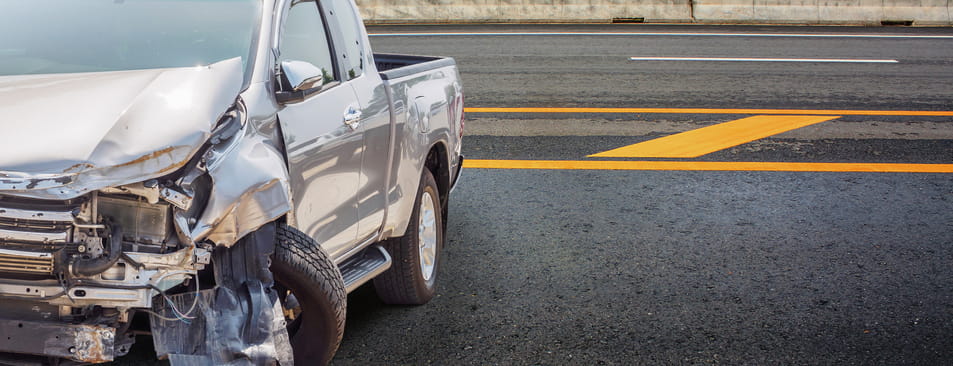Car accidents are an everyday occurrence in the United States. Bad weather, high traffic volume, distracted driving, and speeding are some of the reasons why Florida is one of the states with the highest rates of car accidents — in 2021, Arkansas, Louisiana, Mississippi, Montana, New Mexico, South Carolina, and West Virginia had the highest numbers of motor vehicle accident (MVA) fatalities per 100 miles driven. Florida ranked eighth.
Considering the total number of MVA deaths alone puts Florida as the third most deadly state in the nation, with only Texas and California recording more than Florida’s 3,738 MVA fatalities.
If you’re moving to Florida or planning to travel in the state, you may wonder if Florida is a no-fault state. Florida residents in an accident may also wonder what the difference between no-fault and at-fault is. Understanding Florida’s insurance laws will help you understand your rights after a car accident.
What Does It Mean to Be a No-Fault State?
No-fault states require MVA victims to file insurance claims with their insurance company, regardless of who caused the accident. Florida is a no-fault state, which means residents must comply with the state’s car insurance requirements.
Florida’s No-Fault System
Every system has advantages and disadvantages, and that includes no-fault systems.
Pros of a No-Fault System
The benefits of a no-fault system include ensuring all accident victims can receive benefits after their accident, even if they caused the accident. No-fault systems also significantly reduce the number of MVA lawsuits, which prevents court backlog.
Since you file car accident claims with your insurance company, it may expedite the claims process, enabling you to receive benefits promptly.
Cons of a No-Fault System
Insurance rates are higher in no-fault states. Accident victims also have more legal options in at-fault states.
Florida’s Car Insurance Laws
Florida requires personal vehicle owners to have personal injury protection (PIP) and property damage liability (PDL) insurance. Florida car owners must have at least $10,000 in PIP and PDL coverage. Higher policy rates apply to taxis.
Both insurance types must ensure motorists have sufficient benefits after an accident. While PDL covers things like repair costs, PIP insurance covers 80% of medical bills until the policy amount is used.
Penalties
Motorists with registered vehicles who do not maintain their insurance can have their driver’s license suspended for up to three years. Once the suspension period is complete, these drivers must pay a reinstatement fee.
Uninsured Motorist Coverage
Florida residents do not have to pay for uninsured motorist coverage. Still, this insurance does provide an extra layer of security. Suppose you’re in an accident caused by an uninsured motorist. Your spouse dies in the accident, and you suffer severe injuries requiring long-term medical treatment. Although there are options you can pursue, it’s tough to recover sufficient damages from an uninsured motorist. With uninsured motorist coverage, you can receive compensation for burial and funeral costs, lost wages, pain and suffering, trauma, and wrongful death.
Can I Sue for Damages in a No-Fault State?
It is possible to sue for damages in a no-fault state. However, you must establish the defendant’s liability and prove their negligence to win a car accident lawsuit.
Proving negligence means establishing that the at-fault driver should be aware they had a responsibility to act reasonably, ensuring the safety of others, that they failed to act the way reasonable people would in the same circumstances, and that their unsafe behavior caused harm.
Establishing liability through negligence can be straightforward if the driver caused the accident while breaking the law. Examples of actions justifying a negligence claim include driving under the influence, speeding, and reckless driving.
Florida does have comparative negligence laws. Consequently, if you were more than 50% responsible for your accident, you may be unable to seek compensatory damages.
Suppose you have grounds to seek damages from the at-fault driver. In that case, you may find dealing with their insurance company challenging. A car accident attorney deals with the at-fault driver’s insurance company and uses case law and evidence from your accident to support your claim.
If You Have Been Injured in a Car Accident, Give Jack Bernstein, Injury Attorneys a Call
Jack Bernstein, Injury Attorneys, is here to help you after your Tampa area car accident. Our legal team understands you may need compensation for lost wages, medical expenses, trauma, loss of quality of life, and more. We’ll help you calculate the damages you deserve, gather evidence to support your claim, and handle settlement negotiations. Our goal is to get you fair compensation as soon as possible. As your legal advocates, we’re here to answer your questions, inform you about developments with your case, and explain your legal options. We’ll fight for you until we resolve your claim.
Sources:
Fatality Facts 2021 State by State. (2023).
Florida Insurance Requirements. (2024).
The 2023 Florida Statutes (including Special Session C). (2023).


